This lesson is based around the stories for John, Paul and Sally, who each describe their reasons for becoming involved with the Joyce Layland LGBT Youth Centre in Manchester. This lesson usualises and actualises LGB people Learning Objectives: LO1 Cultural understanding and diversity – a) Appreciating the differences and similarities between people, places, environments and […]
About Andrew

Geography: Demographics – why move to the city?
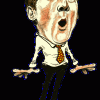
English: Polari
This is a lesson about the ‘anti-language’ Polari. Polari is a slang used by gay men (predominantly) in the years before the partial decriminalisation of homosexuality in 1967. This lesson usualises and actualises gay and bisexual men. Learning Objectives: LO1 Understanding and responding to what speakers say in formal and informal contexts LO2 Recognise different […]

Citizenship: Campaigning and Protest – A British Value?
This lesson is mostly based on interviews with Geoff Hardy and Tim Lucas, former members of The Gay Teachers Group (forerunner to Schools OUT UK) who describe the momentous events of the 1983 NUT Conference, which was held on Jersey. In the second part of the lesson, Myrtle Finley from the Proud Trust (then LGBT Youth […]
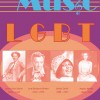
LGBT History Month 2014: Music – Faces of 14 Resources
The theme for History Month 2014 is Music. To cover the LGBT range we have four ‘faces’ from the field of music – lesbian composer and suffragette Dame Ethel Smyth, gay classical composer Lord Benjamin Britten (whose centenery is being marked in 2013); bisexual blues singer Bessie Smith, and trans TV and film music composer […]
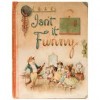
KS3: English – Creating Effects in Poetry through the Use of Irony
This lesson uses the medium of a simple poem which makes ironic references to people’s differences from each other and their differences from norms or stereotypes. Students are invited to read the poem and think about its explicit and implicit meanings and consider irony and its effects. Then they should think about and discuss […]
Recent Videos
Recent Posts
- KS4 English – Shakespeare, Sonnets and Sexuality
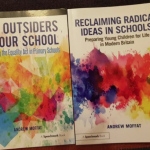 NO OUTSIDERS IN OUR SCHOOLS Teaching the Equality Act in Primary Schools & RECLAIMING RADICAL IDEAS IN SCHOOLS Preparing Young Children for Life in Modern Britain By Andrew Moffat
NO OUTSIDERS IN OUR SCHOOLS Teaching the Equality Act in Primary Schools & RECLAIMING RADICAL IDEAS IN SCHOOLS Preparing Young Children for Life in Modern Britain By Andrew Moffat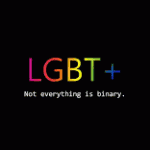 PSHE – Alphabet Soup
PSHE – Alphabet Soup KS3 – PSHE – Shark Bait
KS3 – PSHE – Shark Bait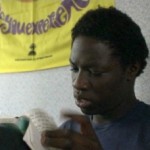 KS4 – PSHE Omar: Young, Gifted and Gay 2 Part 1
KS4 – PSHE Omar: Young, Gifted and Gay 2 Part 1
Tags
SUBMIT YOUR OWN
COPYRIGHT STATEMENT
If copyright is claimed in any photograph which appears on this website, please contact us and we will happily remove it.
Subscribe / Connect
Subscribe to our e-mail newsletter to receive updates.


